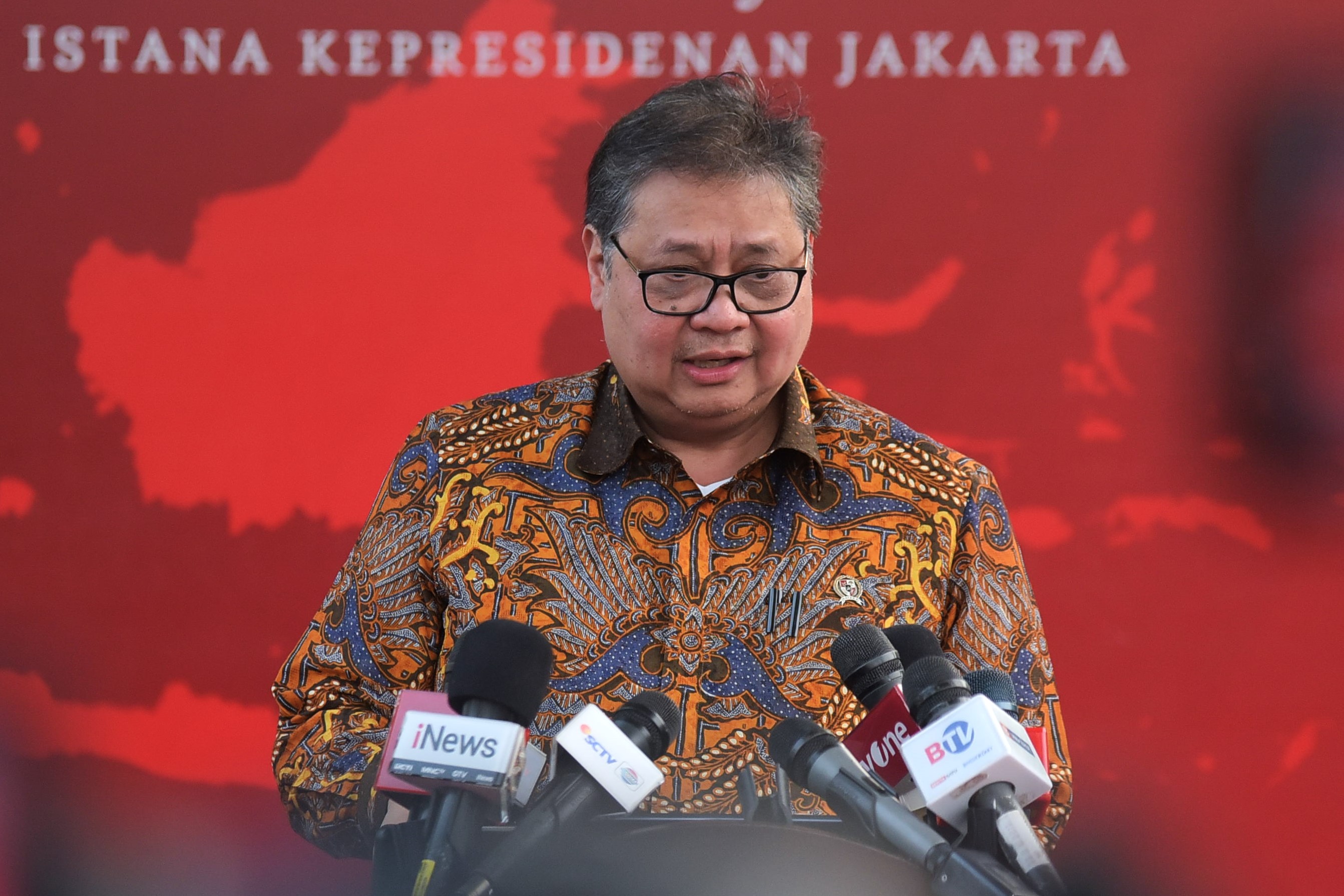Gov’t Expands Authority of Halal Product Determination

Coordinating Minister for the Economy delivers press statement at the Presidential Palace, Wednesday (04/15). (Photo by: Rahmat/PR)
The Government has decided to expand the authority to determine halal not only by the central Indonesian Ulema Council (MUI) but also by other institutions, Coordinating Minister for the Economy Airlangga Hartarto has said.
“Earlier during the meeting with the President on halal issue, it was decided that the authority to issue halal certificate is expanded not only by the central MUI but also by the provincial MUI, regency/city MUI, the Aceh Ulama Consultative Council, and by the Halal Product Fatwa Committee,” he said.
Airlangga added that the changes will also add the scope of inspections of other places for slaughtering animals/poultry other than slaughterhouses (RPH). There will also be synchronization of regulations in the Ministry of Agriculture with regulations in the Ministry of Religious Affairs that the determination of halal products will be carried out based on halal fatwa standards set by the Government, as well as the formation of a Halal Fatwa Committee consisting of academics and ulama elements determined by Minister of Religious Affairs.
“So far, based on Presidential Regulation Number 39 and Regulation of Ministry of Agriculture, it is stipulated that only RPH can slaughter animals and poultry. Later on, the animals and poultry can be slaughtered at the wet market,” he said.
Airlangga went on to say that based on Presidential Regulation Number 39 of 2021, the obligation to certify halal for food products, beverages, slaughtered products and slaughtering services will be completed on October 17, 2024. However, the implementation of the obligation to certify halal has not met the target yet and there are still many micro and small businesses (MSEs) that have not been certified.
The issuance of halal certificates by the Halal Product Guarantee Agency (BPJPH) since 2019 for all types of products as of May 15, 2024 has only reached 4,418,343 products, or 44.18 percent of the target of 10 million products. For the record, the total number of MSEs in the country reaches around 28 million business units.
“The President decided that for MSMEs food, drink and other products, the implementation will be postponed not to 2024 but 2026. This is also applied to traditional medicines, herbals, chemical products, cosmetics, accessories, household goods, various medical devices, and others which will take effect in 2026. So specifically for MSMEs, it has been postponed to 2026,” he said, adding that the implementation of obligation for halal certificate for food, beverages, slaughtered products and slaughtering services after October 17, 2024 will still be applied to medium and big enterprises
Meanwhile, for MSEs, it will be postponed to October 17, 2026 and for imported products also until October 17, 2026 based on mutual recognition agreement (MRA).
“Regarding products from various other countries, this will be enforced after the country signs the MRA with Indonesia. It was previously reported by the Minister of Religious Affairs that currently 16 countries have carried out MRA. Countries that had carried out MRA are also enforced to do so because the halal certificate was obtained in the country of origin. However, for countries that have not signed the MRA, this has not yet been implemented,” he remarked. (FID/UN) (EST/MUR)








